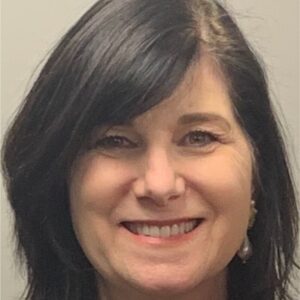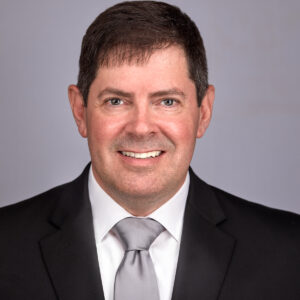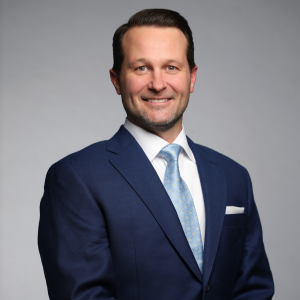Providing your staff with the tools for success
We help people” is the mantra of long-term care. Yet, for an industry dedicated to caring for others, how often do we turn the focus inward and examine the dynamics affecting the people who work in our organizations? People are at the heart of our business—CNAs, RNs, MDs, administrators, and staff members, all working together closely in a wide range of pursuits to ensure that residents get the best care possible. But enlightened leaders know that running a truly successful nursing home or assisted living facility requires attending to the needs of caregivers, as well. With this in mind, we are offering the readers of Nursing Homes/Long Term Care Management a new department called “Your People” which, every other month, will provide a forum for your human development issues—asking for your questions, providing answers specific to your problems.
Some topics that may be relevant, depending on your perspective, include:
Leadership Effectiveness
Recruiting Practices
Team Development
Interviewing Skills
Transition Management
Networking Skills
Change Management
Influence Skills
Relationship Management
Working Styles
Performance Management
Empowerment
Talent Planning Strategies
Creativity and Innovation
Communication Styles
“Managing Up”
Conflict Resolution
Diversity Training
Emerging Management Practices
People Trends
Career Development
Decision Making
Since this is our inaugural column, I thought it would be appropriate to share a personal anecdote about how I got started in the human development field. When I was a student attending business school, still contemplating my long-term career path, I took on a consulting assignment in a local hospital that was experiencing unusually high turnover rates. My Business Management professor suggested that I take on this independent study project that was, in his words, “perfect for you.” He knew that I enjoyed classes that covered topics such as human resources (then called personnel), psychology, sociology, and management practices, but concluded that I should also have firsthand experience of people issues inside an organization.
A serious professional, I interviewed the nurses, staff, and administrators, and also volunteered to work the floor to understand the flow of activities and procedures that occurred during each shift. In addition, I conducted several one-on-one conversations with individuals using an interview guide that I designed to elicit the underlying issues that resulted in this organization’s high turnover.
And what did I learn? Well, before this study, senior management operated under the assumption that higher pay was the answer to all (or most) of their people management issues. As it turned out, this wasn’t true. In reality, RNs, doctors, administrators, and staff members wanted more interaction, greater involvement, and the feeling of having a stake in the process. They wanted to feel a part of the wonderful and amazing mission of improving human health.
As a young, unseasoned idealist, I outlined several employee engagement options for senior management, including strengthening the recruiting process, conducting a better orientation process, developing several training modules, and providing teams with ongoing development support. And at this point, I knew that my career would focus on improving human development—finding ways to help organizations, their teams, and individual employees work more effectively together.
I have since worked with various organizations, including healthcare, pharmaceutical, managed care, financial services, consumer products, high-tech, and utilities, and with small, medium, and large (including multinational) organizations. Regardless of the industry, people issues remain consistent and the goals are the same: Organizations look to recruit the best people, train their teams, retain their top talent, develop leaders and managers, and focus on providing the best service to their clients.
Which brings me back to “Your People.” I chose the name because I wanted it to reflect what matters to your daily professional life—the people challenges, questions, and issues you grapple with every day. Your questions are invited, and only they will make this column work. For the reader questions that we select I will, with pleasure, provide advice and suggestions, list examples, develop solutions, and provide guidance to help you solve your people challenges. Please send your questions to yourpeople0107@nursinghomesmagazine.com and include the following:
Your name/title/organization (this will remain confidential and not be published in the magazine)
Your situation (describe it in as much detail as possible)
Your current people challenge (what you would like help with)
A specific question (what you would like me to answer)
I look forward to providing information that will help both you and our readers at large.
For further information, visit https://www.aim-strategies.com. To send your questions to the author and editors, please e-mail yourpeople0107@nursinghomesmagazine.com.
I Advance Senior Care is the industry-leading source for practical, in-depth, business-building, and resident care information for owners, executives, administrators, and directors of nursing at assisted living communities, skilled nursing facilities, post-acute facilities, and continuing care retirement communities. The I Advance Senior Care editorial team and industry experts provide market analysis, strategic direction, policy commentary, clinical best-practices, business management, and technology breakthroughs.
I Advance Senior Care is part of the Institute for the Advancement of Senior Care and published by Plain-English Health Care.
Related Articles
Topics: Articles , Leadership , Staffing











